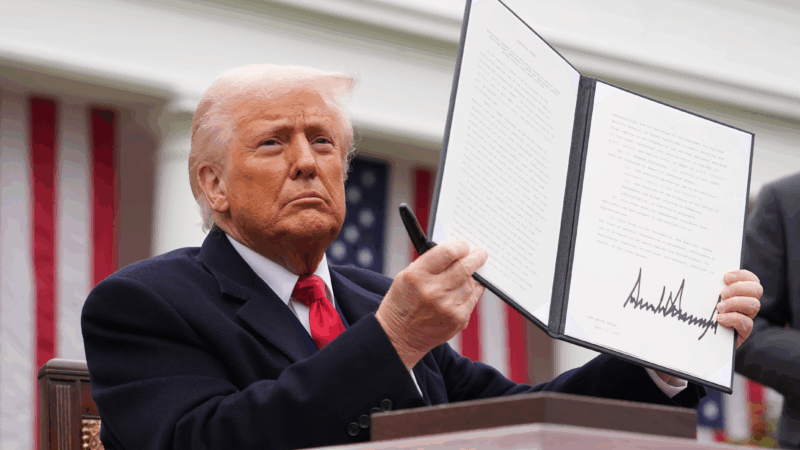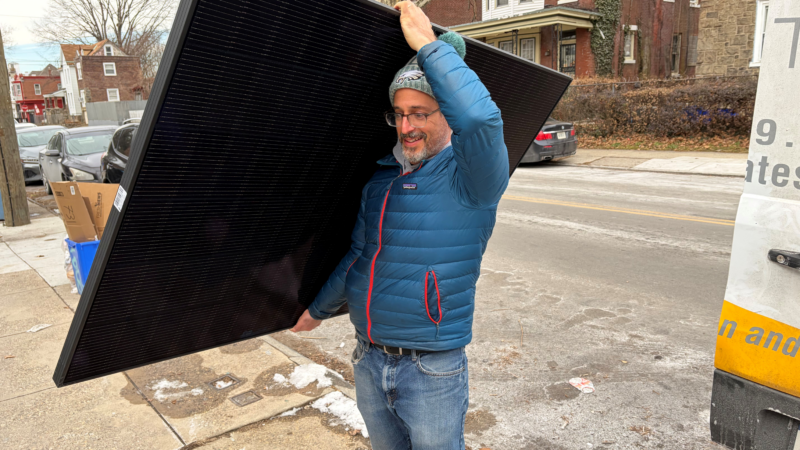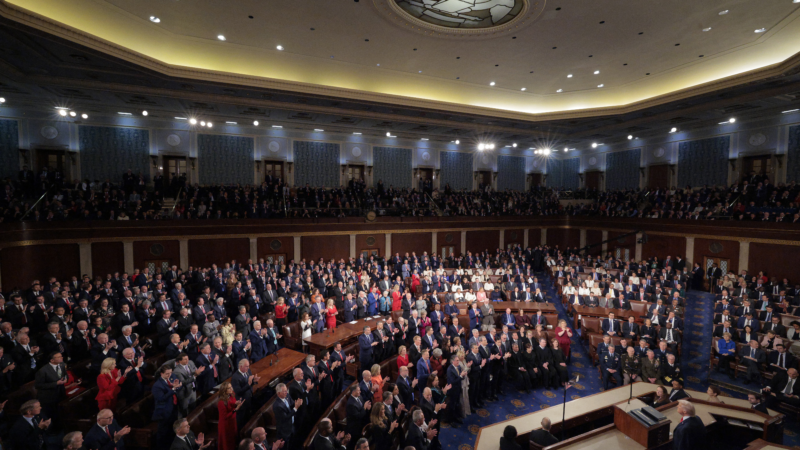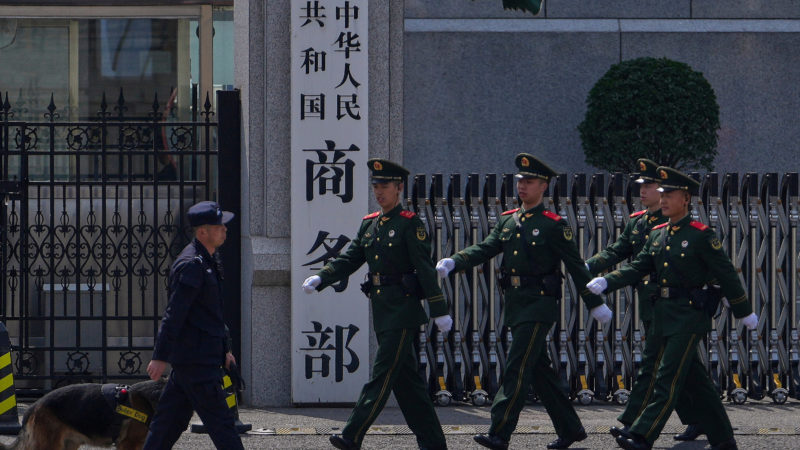We get asked about tariffs all the time. Here’s what we say
The tariff era is here.
After some delays and many adjustments, most of President Trump’s tariffs kicked in this week, setting a 15% rate on most countries, though some others such as India could face much higher import taxes.
All in all, the U.S. has now imposed the highest tariff level since 1933, according to the latest calculations from the Budget Lab at Yale, with an average tariff rate of 18.6%.
So what will this all mean for the U.S. — and for you? Here are the answers to the five questions we tend to hear most often while covering the economy for NPR.
Yes, we’ll probably have to pay more for stuff
Higher prices are likely inevitable. That’s because most economists believe the costs of the tariffs will be split: between the exporter overseas, the companies importing things to the U.S. — and you.
So far, though, shoppers have not felt the full effects because U.S. companies are absorbing most of the costs.
Take General Motors. The automaker said in July tariffs had already cost the carmaker about $1.1 billion in the previous quarter, but it opted to largely absorb those expenses and take a hit to profits.
That can’t last.
Ultimately, companies will have to convince their suppliers overseas to absorb some of the costs — and they will have to pass on some of that to you in the form of price hikes.

We don’t know how much more we’ll pay
That leads to another question we get often. How much are prices going to rise? And the answer is: We wish we knew.
There are projections. For example, the Budget Lab at Yale estimates that prices for clothing and textiles will be among those that see the biggest impact in the short term, with shoe prices potentially rising 39%.
But clearly, consumers don’t think of prices in percentage terms. What people often want to know is how much more their favorite shoe brand will cost. And that gets tricky.
As noted, who pays the tariffs will likely be split, so a 15% tariff on the European Union, for example, doesn’t necessarily mean that you’ll pay 15% more for Italian olive oil.
While exporters or importers may absorb some of the costs, retailers also have wiggle room in deciding how to price the things that make it to their shelves.
The Budget Lab at Yale estimates the average cost from tariffs for households will be $2,400 this year, but it’s an estimate based only on what’s known about tariffs so far.
Overall, inflation will rise, but perhaps not too badly
Put everything together, and inevitably, inflation will rise. But it’s also important to put things in perspective.
Consumer prices rose 2.7% in July from a year ago, a bigger annual increase than in the previous three months. And economists expect inflation will increase some more as tariffs take effect.
But even then, the inflation rate will still be far below the levels from 2022, when annual inflation hit 9.1%, the highest rate in more than four decades.
The problem is that inflation tends to cast a shadow on people’s moods.
Raphael Bostic, the Atlanta Federal Reserve president, this week recalled how former Fed Chair Alan Greenspan used to say he knew when the central bank was successful in battling inflation: People wouldn’t even be thinking about it.
“This is kind of the flip side of that. It’s on the front page every day,” Bostic said. “So people are thinking about this, and I worry about what that means for how consumers and businesses will approach their strategies for engaging the market moving forward.”

The labor market could get worse
The effects of tariffs could potentially also hit people where it tends to hurt the most: their job security.
Data from the Labor Department last week showed only 73,000 jobs were added to the economy in July — and what’s more, job gains that had been tallied for May and June were all but erased.
The numbers were jarring given how strong the labor market had been in the past couple of years. Although the unemployment rate ticked up to 4.2% in July, that’s still a very low level, historically.
But now economists expect hiring to slow this year as companies absorb higher tariff costs and as they grow more cautious about their investments.
So far this year, the U.S. economy has not seen significant layoffs (with exceptions such as the federal sector), but there are signs that people are finding it harder to get new jobs, including recent graduates.
And a weaker job market can have another detrimental effect on people’s moods, making them fearful about the future and more willing to cut down on how much they spend.
The economy will likely slow — but perhaps without a recession
All of these factors are raising concerns about growth, with most economists expecting a slower economy. But most forecasters do not expect a recession, according to many surveys, including a recent one from The Wall Street Journal.
And stock markets have surged, with both the S&P 500 and the Nasdaq recently hitting record highs as investors bet the U.S. economy can withstand Trump’s tariffs.
Nonetheless, even if the economy avoids a recession, one thing is inevitable: From businesses to households, we’ll all feel the tariff effects.
When a horse whinnies, there’s more than meets the ear
A new study finds that horse whinnies are made of both a high and a low frequency, generated by different parts of the vocal tract. The two-tone sound may help horses convey more complex information.
Trump’s many tariff tools mean consumer prices won’t go down, analysts say
The Supreme Court struck down President Trump's signature tariffs. But the president has other tariff tools, and consumers shouldn't expect cheaper prices anytime soon, economists say.
Hundreds of American nurses choose Canada over the U.S. under Trump
More than 1,000 American nurses have successfully applied for licensure in British Columbia since April, a massive increase over prior years.
Tax credits for solar panels are available, but the catch is you can’t own them
Rooftop solar installers are steering customers toward leases instead of purchases. Federal tax credits for purchased systems have ended but are still available for leased ones.
5 takeaways from Trump’s State of the Union address
President Trump hit familiar notes on immigration and culture in his speech Tuesday night, but he largely underplayed the economic problems that voters say they are most concerned about.
China restricts exports to 40 Japanese entities with ties to military
China on Tuesday restricted exports to 40 Japanese entities it says are contributing to Japan's "remilitarization," in the latest escalation of tensions with Tokyo.







